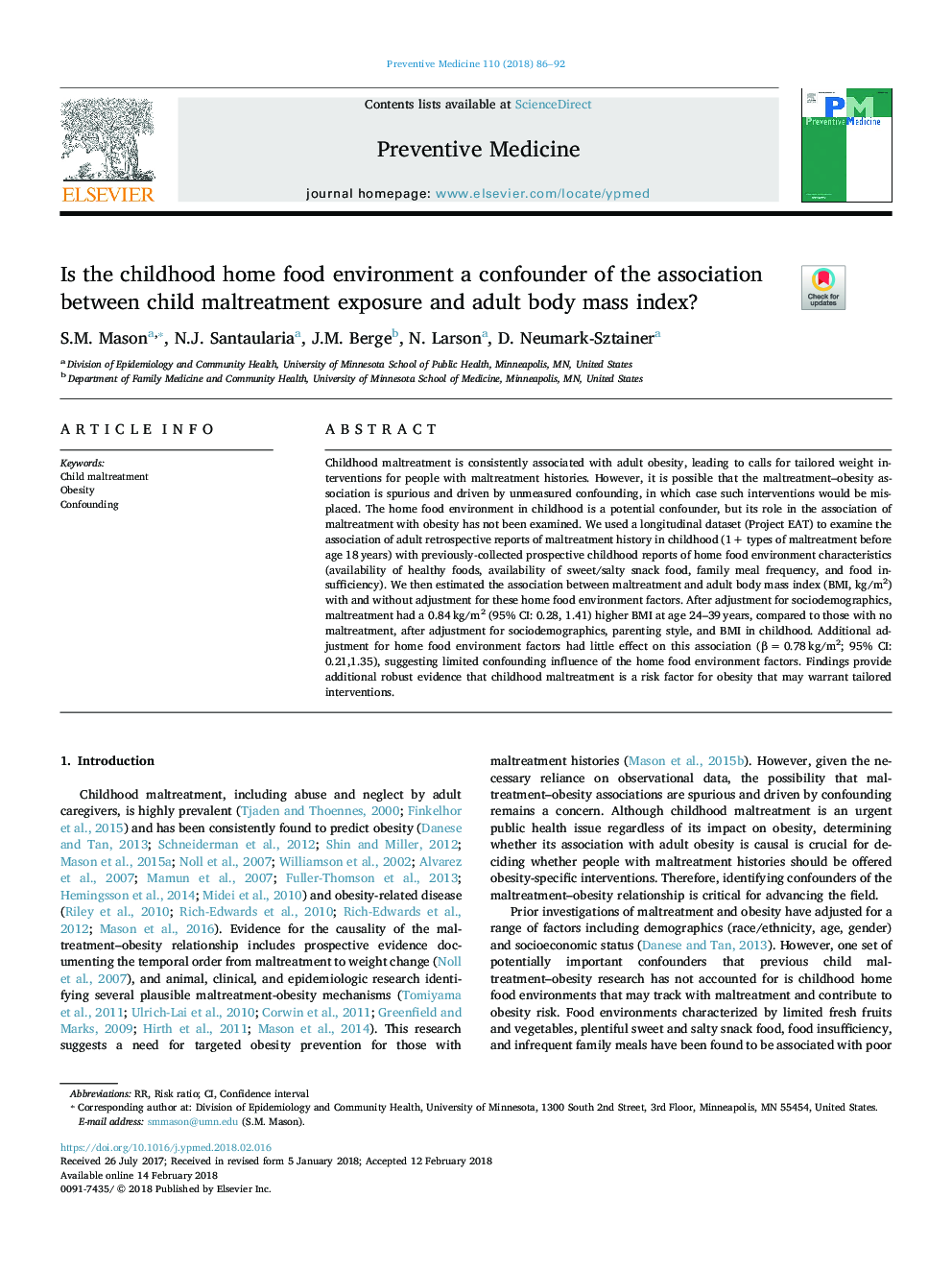| Article ID | Journal | Published Year | Pages | File Type |
|---|---|---|---|---|
| 8693544 | Preventive Medicine | 2018 | 7 Pages |
Abstract
Childhood maltreatment is consistently associated with adult obesity, leading to calls for tailored weight interventions for people with maltreatment histories. However, it is possible that the maltreatment-obesity association is spurious and driven by unmeasured confounding, in which case such interventions would be misplaced. The home food environment in childhood is a potential confounder, but its role in the association of maltreatment with obesity has not been examined. We used a longitudinal dataset (Project EAT) to examine the association of adult retrospective reports of maltreatment history in childhood (1+ types of maltreatment before age 18â¯years) with previously-collected prospective childhood reports of home food environment characteristics (availability of healthy foods, availability of sweet/salty snack food, family meal frequency, and food insufficiency). We then estimated the association between maltreatment and adult body mass index (BMI, kg/m2) with and without adjustment for these home food environment factors. After adjustment for sociodemographics, maltreatment had a 0.84â¯kg/m2 (95% CI: 0.28, 1.41) higher BMI at age 24-39â¯years, compared to those with no maltreatment, after adjustment for sociodemographics, parenting style, and BMI in childhood. Additional adjustment for home food environment factors had little effect on this association (βâ¯=â¯0.78â¯kg/m2; 95% CI: 0.21,1.35), suggesting limited confounding influence of the home food environment factors. Findings provide additional robust evidence that childhood maltreatment is a risk factor for obesity that may warrant tailored interventions.
Related Topics
Health Sciences
Medicine and Dentistry
Complementary and Alternative Medicine
Authors
S.M. Mason, N.J. Santaularia, J.M. Berge, N. Larson, D. Neumark-Sztainer,
